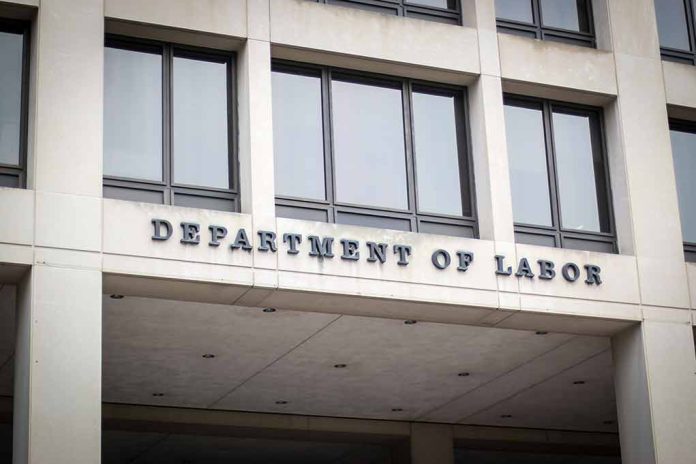
An appeals court ruling has struck down a controversial regulation affecting tipped employee wages, significantly altering the landscape for employers and workers alike.
At a Glance
- The 5th U.S. Circuit Court of Appeals vacated the Department of Labor’s 2021 Final Rule regarding tipped employees, known as the “80/20 Rule” or “80/20/30 Rule”
- The rule categorized work into three types: tip-producing, directly supporting, and non-tip-related work
- The court found the rule contrary to statutory text and arbitrary and capricious
- The decision ends a regulation that had created compliance challenges for employers using the tip credit under federal wage and hour law
Understanding the 80/20 Rule
The 80/20 Rule, established by the Department of Labor’s 2021 Final Rule, categorized work into three types: tip-producing, directly supporting, and non-tip-related work. This rule, officially known as the 80/20/30 Rule, required that non-tip-related work be compensated at full minimum wage, while directly supporting work could be paid at a tip credit rate under certain conditions.
The Fair Labor Standards Act (FLSA) has historically allowed employers to count tips toward satisfying the federal minimum wage for tipped employees. The Department of Labor’s 1967 regulation allowed for dual jobs, where employees could have both tipped and non-tipped roles. The 80/20 Rule built upon this by setting specific limits on how much time could be spent on non-tip-producing tasks.
The regulation introduced by the Biden administration aimed to restrict the tip credit for directly supporting work to 20% of working time and no more than 30 continuous minutes. This rule replaced a Trump administration regulation that allowed workers to be paid the tipped minimum wage if they primarily performed tipped duties.
U.S. Appeals Court strikes down Biden-era 80/20 labor rule. The 2021 U.S. Department of Labor rule only allowed employers to pay staff the federal tip credit for tip-supporting tasks that comprise less than 20% of their work https://t.co/IL3aBD5Z17 pic.twitter.com/5kP5WQpjDO
— Restaurant News (@NRNonline) August 26, 2024
The Court’s Decision
The 5th U.S. Circuit Court of Appeals vacated the 2021 Final Rule, stating it was based on impermissible considerations and contrary to the statutory scheme enacted by Congress. “Because the Final Rule is contrary to the Fair Labor Standards Act’s clear statutory text, it is not in accordance with law,” U.S. Circuit Judge Jennifer Walker Elrod said
The court further highlighted that the rule “replaces the Congressionally chosen touchstone of the tip-credit analysis—the occupation—with one of DOL’s making—the timesheet.” This decision ends the 80/20/30 rule that took effect in December 2021 and highlights the challenges in balancing regulatory priorities with statutory requirements.
Broader Implications
The ruling comes in the context of the U.S. Supreme Court’s decision in Loper Bright Enterprises v. Raimondo which overruled Chevron deference. This fundamental shift changed how courts evaluate the boundaries of regulatory authority and executive actions. “This ruling overturns decades of established precedent, fundamentally changing how courts evaluate the boundaries of regulatory authority and executive actions,” according to Emily M. Dickens, chief of staff, head of government affairs, and corporate secretary for SHRM.
It is essential to note that while the federal regulation is nullified, state and local standards may still apply. For instance, Chicago and Washington, D.C., have already passed laws to phase out the tip credit entirely by 2028 and 2027, respectively.
Sources
- US appeals court scraps Biden tipped wages rule
- Federal Appeals Court Vacates Department of Labor’s “80/20/30 Rule” Regarding Tipped Employees
- Agencies’ Influence over Employers May Erode After Supreme Court Decision





